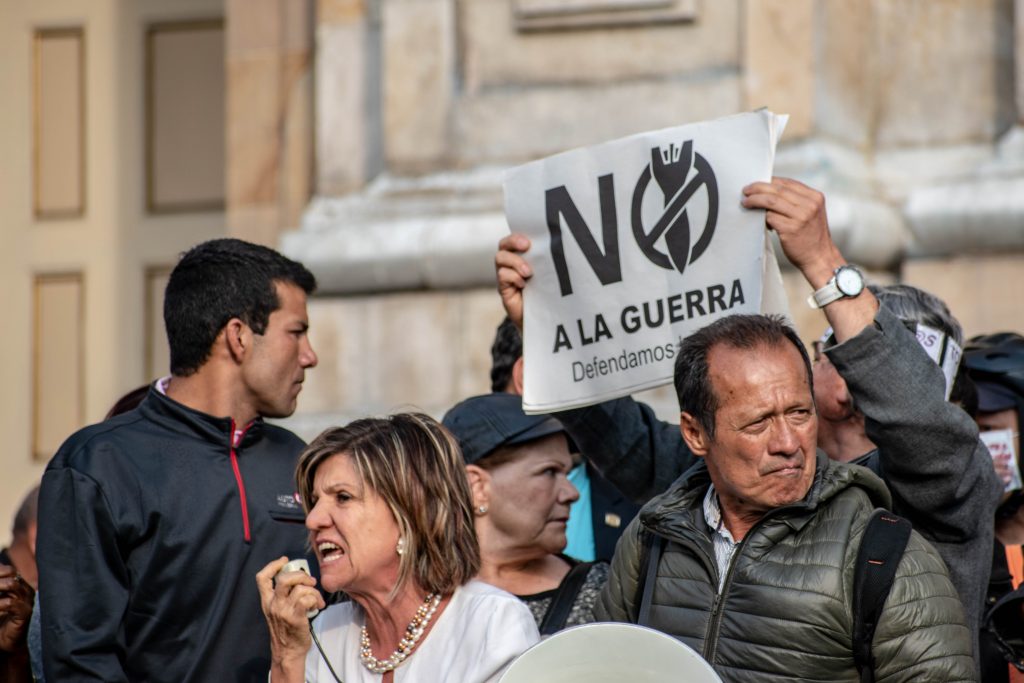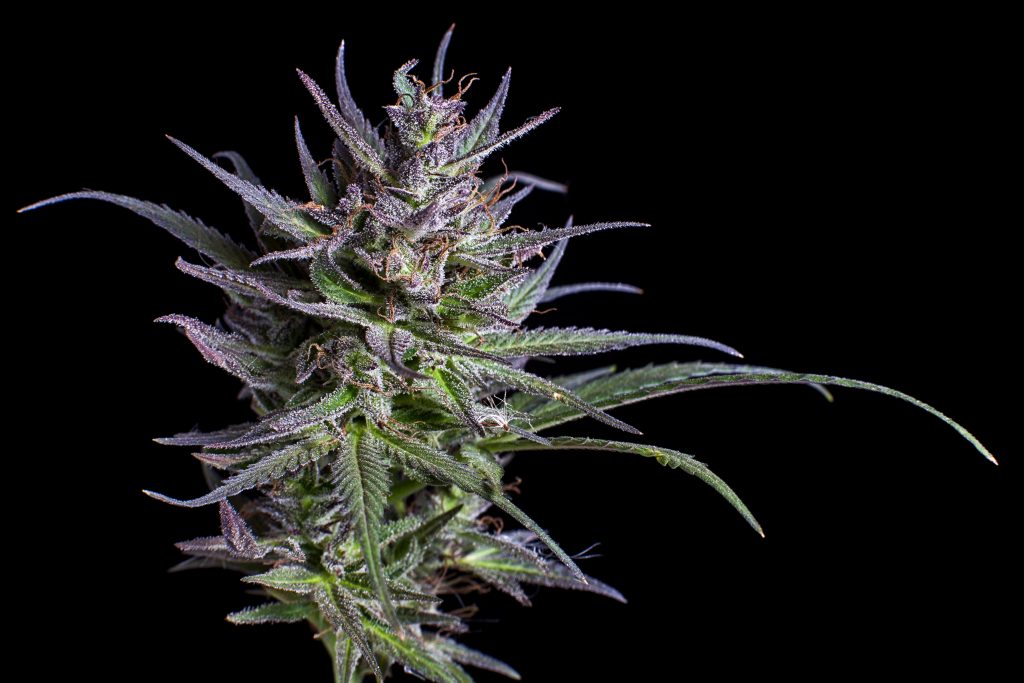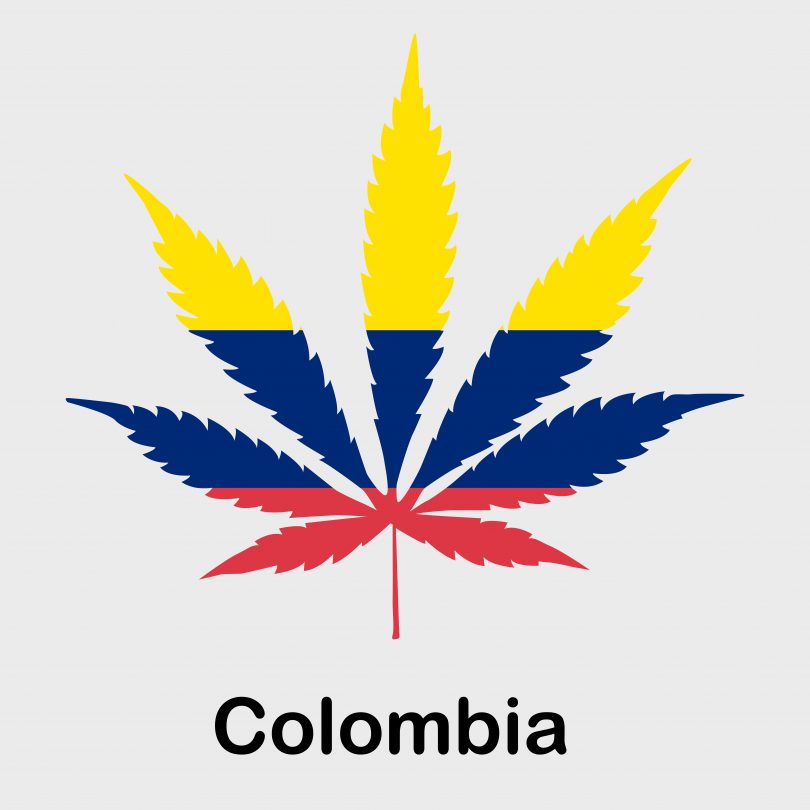In the last few years, Colombia has been shaping up its legal cannabis policies, legalizing medical cannabis and quickly joining the global medical cannabis market. Now, new legislation climbing its way through Colombian Congress, means that recreational cannabis in Colombia is one step closer to becoming a reality.
The world of legal cannabis is a fast-moving and fascinating place. Sign up to our newsletter to keep up-to-date with everything going on.
Colombia and drugs in general
Before getting into the specifics of cannabis law in Colombia, and whether recreational cannabis in Colombia will happen, it’s important to understand the situation that Colombia is in with its drug trade.
The first thing to know about Colombia and drugs, of course, is that Colombia is the biggest global hub for cocaine production, and has been for quite some time. It’s estimated that in 2019, approximately 70% of the cocaine consumed in the world, came from Colombia. It’s also estimated that in that year, approximately 18 million people consumed the drug worldwide. Because of the constant infiltration of law enforcement, most of the coca grown in Colombia is grown in more remote areas. Law enforcement, for its part, has been attempting to eradicate fields over the years, by enforcing crop substitutions and even spraying toxic chemicals over fields where coca plants are rumored to be grown. Despite these efforts, its estimated that in 2017, 1,379 tons of cocaine were produced in the country. Efforts of law enforcement to stop the trade cripple the 130,000 families that subsist from farming and selling coca.
To give an idea how much money is made off the cocaine industry, it takes about 125 kilos of coca to produce one kilo of cocaine. This costs a local drug lab about $137.50. Once this is converted into actual cocaine, the value is increased to $2,269. Once it gets to where its going, that same kilo can bring in approximately $60,000 in revenue in a place like the US, or even more in other locations. This is a massive trade in Colombia, and its led to massive amounts of violence.

When looking for the ‘all told’ measure of this violence, it’s extremely difficult to find actual death tolls. While there are a few random and varying numbers out there, none of them are direct or verifiable, and while we are all aware of the tremendous destruction of this trade, no one seems to be able to say how destructive. In fact, when questioned about it in light of the Netflix drama Narcos, and a statement made on the show about one kilo of cocaine costing six lives each, former DEA head of intelligence in Colombia, Elizabeth Zili stated, “I really couldn’t give you a number, but it was extremely high. We never totally trusted the statistics we were getting from the [Colombian] government. One never does, no matter where you are.”
The same BBC article did some math to try to figure out if the six people per one kilo made any sense even in 1992, and found the number to be extremely high, even when looking at total global deaths. It established at that time a Colombian murder rate of approximately 80 per 100,000. Even though the murder rate has been cut in half since that time, Colombia still has one of the higher murder rates with approximately 25 murders for every 100,000 people in 2019. This can be compared to the US where the rate in 2018 was 5 per 100,000.
But the funniest part about all of it? These massive cocaine trafficking networks that have been used over the years, started as pathways for the trafficking of – you guessed it – marijuana. In fact, prior to its foray into cocaine, Colombia was providing the majority of cannabis to the US in the 70’s.
Colombia and cannabis
When it comes to cannabis, much like Uruguay, Colombia has been a bit more lax than other places, but a lot of this has been directly to combat issues of drug violence. In general, cannabis is illegal for commercial sale and use, however, unless a person is committing a major cannabis crime, the punishments aren’t that dire. In 1994, around the time of Pablo Escobar’s death, Colombia decriminalized both the personal use and possession of cannabis and other drugs. This was further expounded on in 2012 when it was established that a person could have up to 20 grams without being prosecuted. It was even expanded on further with a Constitutional Court ruling in 2015 which then allowed personal cultivation of up to 20 plants.
In 2018, this was gone back on when president Ivan Duque put forth a decree saying cops could, in fact, confiscate even small amounts of cannabis, and while this didn’t apply criminal penalties to offenders, it did institute a fine of up to 208,000 pesos. It also put a ban on people being able to carry small amounts of cannabis, something that the Constitutional Court already ruled was okay. Consequently, the following year (2019), the Constitutional Court of Colombia ruled that parts of Duque’s decree were unconstitutional. This didn’t get rid of the cops being able to search and confiscate drugs, but it did mean no consequences for up to 20 grams as related earlier by the Constitutional Court ruling.
Sale and supply crimes are most certainly illegal, and having more than 20 grams is considered possession with intent to sell. The maximum prison sentence is up to 20 years, surpassing the punishment for a rape.

If it needs to be said, being caught trafficking any drug in Colombia is going to get you in some pretty hot water. Here’s the basic breakdown for what’ll happen to you if you’re dumb enough to transport illegal substances across borders:
- 10+ kg of cannabis, 2 kg of cocaine, 60 grams poppy-based drugs (like heroin) = 10-30 years in prison.
- 1000+ kg cannabis, 5kg cocaine, 2 kg poppy-based drugs (like heroin) = 23-30 years in prison.
Medical marijuana and how to get in on it
At the very end of 2015, President Juan Miguel Santos signed legislation for a regulated medical cannabis market. He stated, “This decree allows licenses to be granted for the possession of seeds, cannabis plants and marijuana.” On July 6th, 2016, Colombian Congress approved law 1787 to create a regulatory framework, which was itself enacted in 2017 through Decree 613. While much is written about the investment opportunities that have been opened up through this, the ability to actually obtain cannabis medications for locals seems to be hindered by supply issues, misinformation, and limitations in development and research. The four licenses that can be applied for to enter the legal medical cannabis market are the following:
- Manufacture of cannabis derivatives – Allows the production of cannabis-derived products for use and scientific research domestically, and for exportation. Interested parties can check details and pricing here.
- Use of cannabis seeds – Allows sale and distribution of cannabis seeds, as well as use for scientific purposes. Check links for details and pricing.
- Cultivation of psychoactive cannabis – Allows the cultivation of cannabis as a crop, the production of cannabis derivatives (along with the first license mentioned), use for scientific purposes, storage of cannabis, disposal of cannabis, and production of cannabis seeds. Details for this license can be found here.
- Cultivation of non-psychoactive cannabis – Allows the production of cannabis seeds for planting, the manufacture of derivatives, industrial uses, and for scientific purposes, as well as storage and disposal. If interested, check for details here.
So…what’s the deal with recreational?
What should be noticed is that Colombia is not the most stringent country when it comes to cannabis laws, and has been updating at quick speeds to allow for more freedoms. So, what about the final legalization for recreational cannabis? While it’s not quite there yet, it really doesn’t seem to be far off, with legislation already starting to make its way through the channels of government. Here’s what’s going on right now in terms of recreational cannabis in Colombia:

1st initiative for recreational cannabis in Colombia – Approved on September 16th by the first committee of the Lower House by a vote of 18-17, allowing it to move forward in the Lower House. It was, unfortunately, not able to make it past the next debate in the Lower House, and is being shelved for now. This initiative was led by opposition legislator Juan Carlos Lozada, and if it passes (in the future) it would amend Colombian Constitution article 49 which currently states, “the carrying and consumption of narcotic or psychotropic substances is prohibited unless prescribed by a doctor.” The amendment would therefore have lifted this ban and legalized cannabis for recreational use, and would actually be in line with previous rulings of Colombia’s highest court, the Constitutional Court. To become law, the bill faced eight debates, four each at the Lower House and Senate. It did not make it through this time around, but I keep it here to show what has been happening, and what could come up again in the future.
2nd initiative for recreational cannabis in Colombia – This includes 38 lawmakers led by center-right and opposition parties, initiated by two senators, Gustavo Bolivar and Luis Fernando Velasco. This bill aims to regulate the production and consumption of marijuana, in essence creating a legal framework for its recreational use. The initiative does expressly ban marijuana use for minors, its promotion and advertisement, as well as establishing specific sites for adult use. In order to become law, this bill must be approved by the end of next year, but as it is a separate bill and not an amendment to an existing law, it only requires four debates to pass. The first debate had been set for end of October, moved to Mid-November, but doesn’t seem to have happened yet. While governments have been moving slower in light of the Coronoavirus pandemic, the bill is still very much alive. Those pushing this bill point out how Uruguay diverted around 40% of business from cartels, established 500 jobs, and received €100 million in investments by 2018. They have also pointed out how prohibiting consumption has never led consumers to not be able to access the drug.
Conclusion
Uruguay had a similar problem to Colombia, though not nearly as intense. In order to cut down on the black-market trade of cannabis, it legalized it and established a government-run system to regulate it. Colombia has already done a lot to limit drug violence, decriminalizing many drugs in an effort to thwart it, and the cartels that promote it. A recreational legalization would certainly go in line with this, and I expect that if the current bill doesn’t pass, the next one to be introduced will. It might very well be that with Uruguay, Mexico’s impending legalization, and recreational cannabis in Colombia likely following suit soon, south of the border will be the place to go for legal marijuana.
Welcome to CBDtesters.co, your #1 spot for all cannabis-related news. Come, stop by regularly to stay in-the-loop, and sign up to our newsletter so you never miss a thing!
Resources
Germany Rejected Its Recreational Cannabis Bill
New Zealand Voted NO to Cannabis Legalization
German Cannabis Flower Market is Ready to Explode
Uruguay Was The First Country to Legalize Cannabis – How Are They Doing Now?
Fly with Cannabis – Which Countries Let You Do It Newest Cannabinoid Powerhouse – CBC – What Can It Do for You?
What is DELTA 8 THC (FAQ: Great resource to learn about DELTA 8THC)
Legal for a Day – The Mahashivaratri Festival and Nepal’s Changing Cannabis Laws
Will Mexico Become Biggest Legal Cannabis Market?
The CBD Flowers Weekly newsletter (your top resource for all things smokable hemp flowers)
The Medical Cannabis Weekly newsletter (International medical cannabis business report)
Paraguay Grows it, Brazil Takes it… Will New Cannabis Laws Change Anything?
The Delta 8 Weekly Newsletter (All you need to know about Delta 8 thc) and the Best Black Friday Delta 8 THC Deals 2020. Cannabis Election Results – Why Israel Is (and will continue to be) A Global Leader in the Cannabis Industry
Mexico Still Waiting on Its Promised Cannabis Legalization
How the Cannabis Industry is Saving Small Towns Across America
Argentina Legalized Medical Cannabis in 2017 – and Gives It Away for Free
Uruguay Was The First Country to Legalize Cannabis – How Are They Doing Now?









